Johnson Thomas Howard - Culture, Conflict, and Counterinsurgency
Here you can read online Johnson Thomas Howard - Culture, Conflict, and Counterinsurgency full text of the book (entire story) in english for free. Download pdf and epub, get meaning, cover and reviews about this ebook. City: Afghanistan;Stanford (Calif, year: 2014;2013, publisher: Stanford University Press, genre: Politics. Description of the work, (preface) as well as reviews are available. Best literature library LitArk.com created for fans of good reading and offers a wide selection of genres:
Romance novel
Science fiction
Adventure
Detective
Science
History
Home and family
Prose
Art
Politics
Computer
Non-fiction
Religion
Business
Children
Humor
Choose a favorite category and find really read worthwhile books. Enjoy immersion in the world of imagination, feel the emotions of the characters or learn something new for yourself, make an fascinating discovery.

- Book:Culture, Conflict, and Counterinsurgency
- Author:
- Publisher:Stanford University Press
- Genre:
- Year:2014;2013
- City:Afghanistan;Stanford (Calif
- Rating:4 / 5
- Favourites:Add to favourites
- Your mark:
- 80
- 1
- 2
- 3
- 4
- 5
Culture, Conflict, and Counterinsurgency: summary, description and annotation
We offer to read an annotation, description, summary or preface (depends on what the author of the book "Culture, Conflict, and Counterinsurgency" wrote himself). If you haven't found the necessary information about the book — write in the comments, we will try to find it.
Culture, Conflict, and Counterinsurgency — read online for free the complete book (whole text) full work
Below is the text of the book, divided by pages. System saving the place of the last page read, allows you to conveniently read the book "Culture, Conflict, and Counterinsurgency" online for free, without having to search again every time where you left off. Put a bookmark, and you can go to the page where you finished reading at any time.
Font size:
Interval:
Bookmark:
Culture, Conflict, and Counterinsurgency
Edited by Thomas H. Johnson and Barry Scott Zellen
Stanford Security Studies
An Imprint of Stanford University Press
Stanford, California
Stanford University Press
Stanford, California
2014 by the Board of Trustees of the Leland Stanford Junior University. All rights reserved.
No part of this book may be reproduced or transmitted in any form or by any means, electronic or mechanical, including photocopying and recording, or in any information storage or retrieval system without the prior written permission of Stanford University Press.
Printed in the United States of America on acid-free, archival-quality paper
Library of Congress Cataloging-in-Publication Data
Culture, conflict, and counterinsurgency / edited by Thomas H. Johnson and Barry Scott Zellen.
pages cm
Includes bibliographical references and index.
ISBN 978-0-8047-8595-2 (cloth : alk. paper)
1. Afghan War, 2001Social aspects. 2. CounterinsurgencyAfghanistan. 3. Military intelligenceAfghanistan. 4. AfghanistanSocial life and customs. 5. Counterinsurgency. 6. Military intelligence. 7. Culture. I. Johnson, Thomas H., editor of compilation. II. Zellen, Barry Scott, editor of compilation.
DS371.412.C85 2014
958.104'71dc23
2013021447
ISBN 978-0-8047-8921-9 (electronic)
Special discounts for bulk quantities of Stanford Security Studies are available to corporations, professional associations, and other organizations. For details and discount information, contact the special sales department of Stanford University Press. Tel: (650) 736-1782, Fax: (650) 736-1784
Typeset by Thompson Type in 10/14 Minion
Thomas H. Johnson would like to dedicate this book to the memory of Howard T. Johnson and with love to Ryan, Courtney, and Kathy.
Barry Scott Zellen would like to dedicate this book with sincere and humble gratitude to Americas tribal allies, past, present, and futureour brothers-in-arms from the very earliest days of our republic, who continue to fight bravely at our side.
CONTENTS
by Thomas H. Johnson and Barry Scott Zellen
by Alexei JD Gavriel
by Marc W. D. Tyrrell
by Steffen Merten
by Thomas J. Barfield
by Thomas H. Johnson
by Feroz Hassan Khan
7. The Maneuver Company in Afghanistan: Establishing Counterinsurgency Priorities at the District Level
by Michael R. Fenzel
by Robert J. Bebber
by Nathan R. Springer
by Thomas H. Johnson and Barry Scott Zellen
NOTES ON CONTRIBUTORS
Thomas Barfield is an anthropologist who conducted ethnographic fieldwork with nomads in northern Afghanistan in the mid-1970s as well as shorter periods of research in Xinjiang, China, and post-Soviet Uzbekistan. He is author of The Central Asian Arabs of Afghanistan (1981) and The Perilous Frontier: Nomadic Empires and China (1989) and coauthor of Afghanistan: An Atlas of Indigenous Domestic Architecture (1991). Currently Professor of Anthropology at Boston University, Barfield is also President of the American Institute for Afghanistan Studies. Since 2001 his research has focused on problems of law and political development in contemporary Afghanistan. In 2007 Barfield received a Guggenheim Fellowship for his most recent book, Afghanistan: A Cultural and Political History (Princeton, 2010).
LT Robert Jake Bebber is an Information Warfare officer in the U.S. Navy. He is currently serving on the staff of the Commander of the United States Seventh Fleet, headquartered in Yokosuka, Japan, and embarked on the USS Blue Ridge. From December 2007 to November 2008, LT Bebber was the Information Operations Officer for Joint Provincial Reconstruction Team Khost in Khost, Afghanistan. LT Bebber received his PhD in Public Policy in 2007 from the University of Central Florida in Orlando. LT Bebber is supported by his wife Dana and lives in Yokosuka, Japan. He is currently Lieutenant in the U.S. Navy.
Colonel Michael R. Fenzel is a native of Chicago, Illinois. He holds a BA in Economics from Johns Hopkins University, an MPA from Harvard University, and an MA in National Security and Strategic Studies from the U.S. Naval War College and is a PhD Candidate in National Security Studies at the Naval Postgraduate School. Colonel Fenzel has served as a strategist and policy analyst for the U.S. Army Chief of Staff, as a Director for Transnational Threats and Director for Combating Terrorism at the National Security Council (NSC) on the White House staff (20002001). Mike has taken part in seven contingency deployments over the last twenty-five years, including the parachute assault into Iraq in March 2003 and two extended deployments to Afghanistan between 2004 and 2008, where he served as the Deputy Director for Military Operations, Deputy Brigade Commander for 1st Brigade, 82nd Airborne Division, in Regional Command East, and Battalion Task Force Commander in Eastern Paktika along the border with Pakistan. He has most recently commanded the 2nd Brigade of the 1st Armored Division (2010) and 3rd Brigade of the 82nd Airborne Division since early 2012. Colonel Fenzel is a White House Fellow, Life Member on the Council on Foreign Relations, and Douglas MacArthur Leadership Award winner and has also been awarded for valor twice in combat.
Alexei Gavriel is an applied anthropologist conducting research on the integration of sociocultural knowledge into contemporary military operational planning and intelligence. He serves as Afghanistan Program Manager for Glevum Associates Media Evaluation Project, which examines client-funded media content and reports on its impact on Afghan individuals and society through determining whether a target audience is being reached and if the primary messages of the media are understood. He has conducted ethnographic research in a variety of remote locations among indigenous reindeer herders in the Russian tundra, Roma-Gypsy ghetto dwellers in Eastern Slovakia, and nationalist-separatists in the former Yugoslavia.
Professor Thomas H. Johnson is a faculty member of the National Security Affairs Department at the Naval Postgraduate School as well the Director of the Program for Culture & Conflict Studies. Under his direction, the CCS program coordinates research activities on Afghanistan and other countries of South and Central Asia as well as the Middle East. At NPS, Professor Johnson teaches courses on Afghanistan, Central Asia, terrorism, and insurgencies/counterinsurgencies. He also regularly contributes to the Regional Security Education Program and the Leadership Development and Education for Security and Peace Program at NPS, where he briefs deploying troops. Johnson has taught at the University of Southern California and the Foreign Service Institute and frequently lectures at Service Academies. Before joining the faculty of the Naval Postgraduate School, he served on the faculty of George Mason University. For two decades, Professor Johnson has conducted research and written on Afghanistan and South Asia. He is a member of the Afghanistan Editorial Board of the National Security Archive. His publications have appeared in the American Political Science Review, International Security, Foreign Policy, Military Review, Journal of Politics, Orbis: A Journal of World Affairs, Central Asian Survey, China and Eurasian Forum Quarterly, Small Wars and Insurgencies, Strategic Insights, The Brown Journal of World Affairs, Strategic Review, Politikon: South African Journal of Political Science, and the Journal of Modern African Studies, as well as numerous scholarly edited volumes and texts. His commentaries have appeared in numerous media outlets to recently include the
Next pageFont size:
Interval:
Bookmark:
Similar books «Culture, Conflict, and Counterinsurgency»
Look at similar books to Culture, Conflict, and Counterinsurgency. We have selected literature similar in name and meaning in the hope of providing readers with more options to find new, interesting, not yet read works.
Discussion, reviews of the book Culture, Conflict, and Counterinsurgency and just readers' own opinions. Leave your comments, write what you think about the work, its meaning or the main characters. Specify what exactly you liked and what you didn't like, and why you think so.

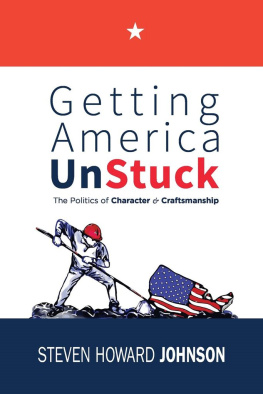
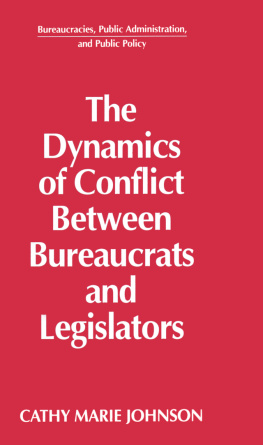
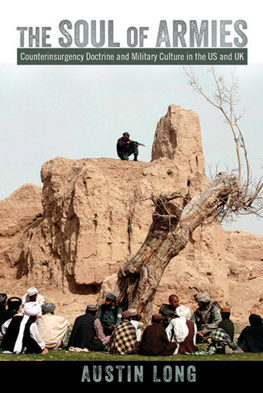
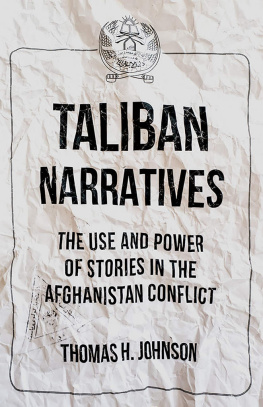

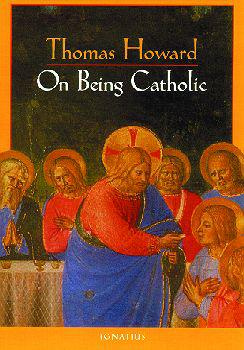


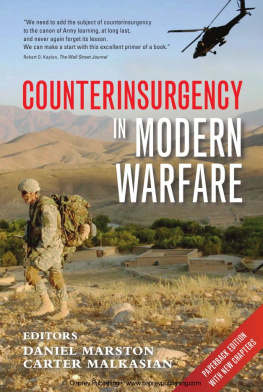
![Gregory Fremont-Barnes - A History of Counterinsurgency [2 volumes]](/uploads/posts/book/74652/thumbs/gregory-fremont-barnes-a-history-of.jpg)